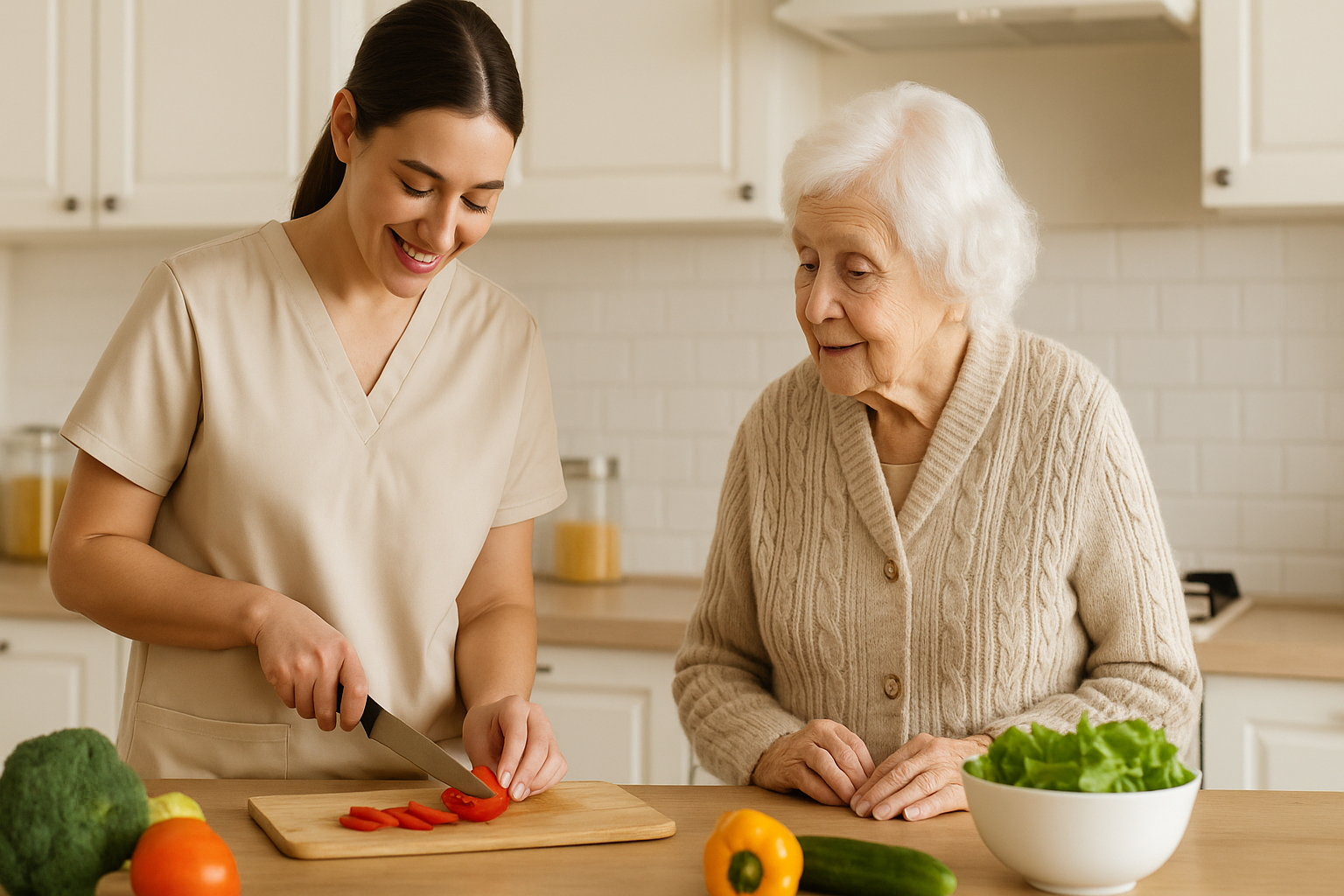Helping Seniors Embrace Better Eating Habits

Author: Home Helpers® Home Care
As seniors age, maintaining proper nutrition becomes increasingly important for overall health, energy levels, and quality of life. However, many seniors find themselves relying heavily on processed foods due to physical limitations, time constraints, or simply feeling overwhelmed by meal planning and preparation. The good news is that elder care can help break this habit and offer seniors tips and assistance that allows them to embrace better eating habits.
Understanding the Processed Food Challenge
Processed foods are often convenient but typically contain high levels of sodium, preservatives, and artificial ingredients that can worsen health conditions common in older adults, such as hypertension, diabetes, and heart disease. However, many seniors turn to these options because fresh food preparation can become physically demanding or seem too time-consuming.
How Elder Care Makes a Difference
Caregivers can work with seniors and their healthcare providers to develop meal plans that accommodate specific dietary restrictions, medications, and health conditions. They understand how to balance nutrition with personal preferences, ensuring that healthy eating doesn't feel like a punishment but rather an enjoyable part of daily life. Other ways elder care helps include the following:
Hands-On Food Preparation Assistance: Caregivers can assist with every aspect of food preparation, from washing and chopping vegetables to operating kitchen appliances safely. This support helps seniors who may struggle with arthritis, limited mobility, or vision issues to still enjoy fresh, home-prepared meals.
Smart Shopping Strategies: Caregivers can accompany seniors on grocery shopping trips or handle shopping independently, focusing on fresh produce, lean proteins, and whole grains. They know how to read nutrition labels and can help identify hidden sources of sodium and preservatives in seemingly healthy products.
Practical Tips for Reducing Processed Foods
Elder care can also educate seniors and their family members regarding tips that make choosing healthier foods easier, such as batch cooking. This technique involves preparing large quantities of soups, stews, and casseroles using fresh ingredients, then freezing portions for easy reheating throughout the week.
Caregivers can also introduce seniors to smart and simple swaps, such as replacing instant oatmeal with steel-cut oats, canned soups with homemade broths, and packaged snacks with fresh fruit or nuts. At the same time, they can help prep vegetables, including washing, chopping, and storing them, so they are easier for seniors to use throughout the week.
Finally, one-pot meals that focus on simple, nutritious ingredients make cooking simpler and reduce any cleanup that seniors need to do.
Building Sustainable Habits
The key to successful dietary changes requires creating sustainable routines rather than dramatic overhauls. With this in mind, caregivers can introduce gradual changes that feel manageable and enjoyable, such as introducing new foods slowly, teaching simple cooking techniques, and providing consistent encouragement throughout the transition.
A hidden benefit to embracing better eating habits is that many seniors discover renewed joy in cooking when they have proper support. The aroma of fresh herbs, the satisfaction of preparing a colorful meal, and the improved energy that comes from better nutrition can significantly enhance quality of life.
Elder care offers invaluable support in helping seniors move away from processed foods toward fresh, nutritious eating. With professional assistance in meal planning, food preparation, and grocery shopping, seniors can overcome the barriers that often lead to reliance on processed foods.
Sources:
https://www.ncoa.org/article/8-ways-to-make-better-food-choices-for-older-adults
If you or an aging loved one is considering elder care in Campbell, CA, please contact the caring staff at Home Helpers today (408) 317-4969.
